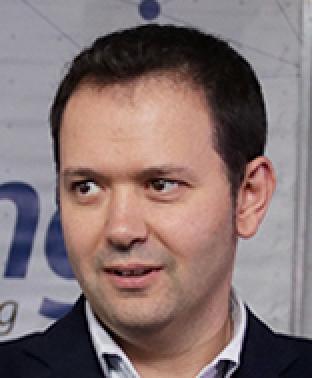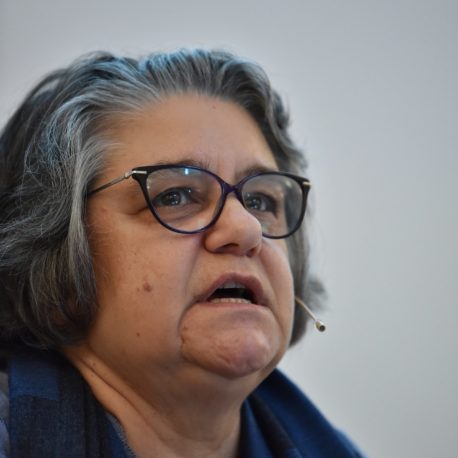SIIE 2024 Simposio Internacional de Informática Educativa / Spanish version
see what we can do for you.
SIIE 2024 International Symposium on Computers in Education / English version
see what we can do for you.
Extended: 20th of March 2024
20th of April 2024
15th of May 2024
Extended: 22th of April 2024
19th-21st June 2024
The International Symposium on Computers in Education (SIIE) provides an international forum for presenting and discussing the latest advances in research on learning technologies and their practical application in educational processes. It also aims to unite researchers, developers, institutional representatives, and teachers to share views, knowledge, and experiences.
The 26th edition of the Symposium will focus on Artificial Intelligence application in education, specially relevant in our current society in different contexts. This does not mean to dismiss other interesting topics such as systems, platforms, pedagogies, and practice-based education in e-learning and b-learning, including simulators, augmented reality systems, virtual reality systems, and remote labs.
This edition of the SIIE is held within the framework of the VII Spanish Congress on Informatics (CEDI 2024).
The Symposium calls for quality contributions presenting original work in Educational Informatics related to the topics of interest. Contributions can be written in Spanish, Portuguese or English. The title and abstract must also be written in English. The presentation of papers at the symposium may be in Spanish or English.
This edition of the Symposium will be co-located within the frame of the 7th Spanish Congress of Informatics.
All contributions must be submitted as PDF files and conform to the official IEEE Proceedings Formatting Instructions (http://www.ieee.org/conferences_events/conferences/publishing/templates.html). Regular contributions will be limited to a maximum of 6 pages.
Submissions should be made via the EasyChair platform through the following link (https://easychair.org/conferences/?conf=siie2024).
Accepted papers will be published digitally as symposium proceedings, which will be distributed to participants prior to the symposium. Papers submitted and presented will be included in an edition of post-proceedings
The conference proceedings will be submitted for inclusion to the IEEE Xplore Digital Library®. Papers to be submitted for inclusion to the IEEE Xplore Digital Library® must be written in English.
At the end of the symposium, the X Edition of the "Antonio Vaquero" award will be presented to the best paper of the SIIE 2024.
The best articles will also be selected for publication in extended versions in various journals. Special issues are currently confirmed in:
In addition to the regular sessions, the following special sessions will take place:
Contributions to the special sessions should be submitted as PDF files and adhere to the official IEEE proceedings format guidelines. Contributions to the special sessions for the doctoral consortium should be a minimum of 2 pages and a maximum of 6 pages, for particularly relevant articles a minimum of 1 page and a maximum of 2, and for European projects a minimum of 2 and a maximum of 4 pages.
Submissions to the special sessions should also be made through the EasyChair platform using the following link (https://easychair.org/conferences/?conf=siie2024).
Martín Llamas Nistal – Universidad de Vigo, España
Cristina Azevedo Gomes – Instituto Politécnico de Viseu, Portugal
Francisco José García Peñalvo – Universidad de Salamanca, España
António José Mendes – Universidad de Coimbra, Portugal
Ángel Velázquez Iturbide – Universidad Rey Juan Carlos, España
Juan Manuel Dodero Beardo - Universidad de Cádiz


Alicia García Holgado - Universidad de Salamanca, España
Alvaro Figueira - Universidade do Porto, Portugal
Ana Amélia Carvalho - Universidade de Coimbra, Portugal
Ana Belén González Rogado - Universidad de Salamanca, España
Ana Isabel Molina - Universidad de Castilla-La Mancha, España
Anabela Gomes - Instituto Politécnico de Coimbra, Portugal
Ángel Fidalgo - Universidad Politécnica de Madrid, España
Ángel Velázquez Iturbide - Universidad Rey Juan Carlos, España
Antonio Balderas Alberico - Universidad de Cádiz, España
António Dias de Figueiredo - Universidade de Coimbra, Portugal
António José Mendes - Universidade de Coimbra, Portugal
António José Osório - Universidade do Minho, Portugal
Antonio Manso - Instituto Politécnico de Tomar, Portugal
Antonio Miguel Seoane Pardo - Universidad de Salamanca, España
António Moreira - Universidade de Aveiro, Portugal
Antonio Sarasa Cabezuelo - Universidad Complutense de Madrid, España
Begoña Ferrero Martín - Universidad del País Vasco, España
Belmiro Rego - Instituto Politécnico de Viseu, Portugal
Carina González González - Universidad de La Laguna, España
Carla Morais - Universidade do Porto, Portugal
Carlos Brigas - Instituto Politécnico da Guarda, Portugal
Carlos Delgado Kloos - Universidad Carlos III de Madrid, España
Célio Marques - Instituto Politécnico de Tomar, Portugal
Covadonga Rodrigo - Universidad Nacional de Educación a Distancia, España
Cristian Cechinel - Universidad Federal de Pelotas, Brasil
Cristina Azevedo Gomes - Instituto Politécnico de Viseu, Portugal
Davinia Hernández Leo - Universitat Pompeu Fabra, España
Diana Pérez Martín - Universidad Rey Juan Carlos, España
Eduarda Ferreira - Universidade Nova de Lisboa, Portugal
Erla Mariela Morales Morgado - Universidad de Salamanca, España
Estefanía Martín Barroso - Universidad Rey Juan Carlos, España
Faraón Llorens Largo - Universidad de Alicante, España
Fernando Albuquerque Costa - Universidade de Lisboa, Portugal
Fernando Mikic - Universidade de Vigo, España
Fernando Ramos - Universidade de Aveiro, Portugal
Francisco José García Peñalvo - Universidad de Salamanca, España
Francisco Jurado, Universidad Autónoma de Madrid, España
Gabriel José Guerrero Contreras - Universidad de Cádiz, España
Gregorio Robles Martínez - Universidad Rey Juan Carlos, España
Henrique Gil - Instituto Politécnico de Castelo Barnco, Portugal
Ignacio Aedo Cuevas - Universidad Carlos III de Madrid, España
Irene Tomé - Universidade Nova de Lisboa, Portugal
Isabel Pereira - Instituto Politécnico de Leiria, Portugal
Iván Ruiz Rube - Universidad de Cádiz, España
Jaime Sánchez - Universidad de Chile, Chile
Jaime Urquiza - Universidad Rey Juan Carlos, España
Jesús González Boticario - Universidad Nacional de Educación a Distancia, España
João Torres – Instituto Politécnico de Setúbal
José V. Benlloch-Dualde - Universidad Politécnica de Valencia, España
José Luis Sierra Rodríguez - Universidad Complutense de Madrid, España
Juan Cruz Benito - IBM Research, España
Juan Manuel Dodero Beardo - Universidad de Cádiz, España
Juan Manuel Santos - Universidade de Vigo, España
Lucila Santarosa - Universidades Federal do Rio Grande do Sul, Brasil
Luis Anido Rifón - Universidad de Vigo, España
Luis Pedro - Universidade de Aveiro, Portugal
Luis Valente - Universidade do Minho, Portugal
Manuel Caeiro Rodríguez - Universidad de Vigo, España
Manuel Castro Gil - Universidad Nacional de Educación a Distancia, España
Manuel Ortega Cantero - Universidad de Castilla-La Mancha, España
Manuel Palomo Duarte - Universidad de Cádiz, España
Manuel Pérez Cota - Universidad de Vigo, España
Maria João Gomes - Universidade do Minho, Portugal
Maria João Loureiro - Universidade de Aveiro, Portugal
Maria João Silva - Instituto Politécnico de Lisboa, Portugal
Maria José Marcelino - Universidade de Coimbra, Portugal
María Luisa Sein-Echaluce Lacleta - Universidad de Zaragoza, España
Maribel Miranda Pinto - Universidade Aberta, Portugal
Maria Teresa Pessoa - Universidade de Coimbra, Portugal
Martín Llamas Nistal - Universidad de Vigo, España
Maximiliano Paredes Velasco - Universidad Rey Juan Carlos, España
Miguel Ángel Conde González - Universidad de León, España
Miguel Ángel Redondo Duque - Universidad de Castilla-La Mancha, España
Miguel Rodríguez Artacho - Universidad Nacional de Educación a Distancia, España
Natalia Castanon - Universidad Metropolitana, Venezuela
Paulo Dias, Universidade Aberta, Portugal
Pilar Rodríguez Marín - Universidad Autónoma de Madrid, España
Rosa M. Carro Salas - Universidad Autónoma de Madrid, España
Ramón Fabregat Gesa - Universitat de Girona, España
Regina Motz - Universidad de la República, Uruguay
Rita Cadima - Instituto Politécnico de Leiria, Portugal
Rosa Vicari, Universidade Federal do Rio Grande do Sul, Brasil
Rosário Rodrigues - Instituto Politécnico de Setúbal, Portugal
Sara Balderas Díaz - Universidad de Cádiz, España
Susana Nieto Isidro - Universidad de Salamanca, España
Yannis Dimitriadis - Universidad de Valladolid, España
The following is a non-exhaustive list of related or complementary subjects that are considered within the main topic of the symposium:
Download Call for papers SIIE 2024 (PDF)
Registration for SIIE 2024 must be done through the CEDI 2024 website: https://www.congresocedi.es/
A registration must be completed for each paper to be presented at SIIE through the CEDI conference.
Program
The program for SIIE sessions can be downloaded here and all other events held at CEDI are in the conference web page
Presentation
Presentations must be made in person at the scheduled time according to the program.
The language of the presentation will preferably be in English, although it can also be presented in Spanish or Portuguese.
Books of abstracts is available here.







